TAIF: ‘We look for opportunities to achieve the best results’
How did the situation in the gas and petrochemical market and the oil refining sector develop in Russia in 2022 and how did it influence economic results of TAIF Group?
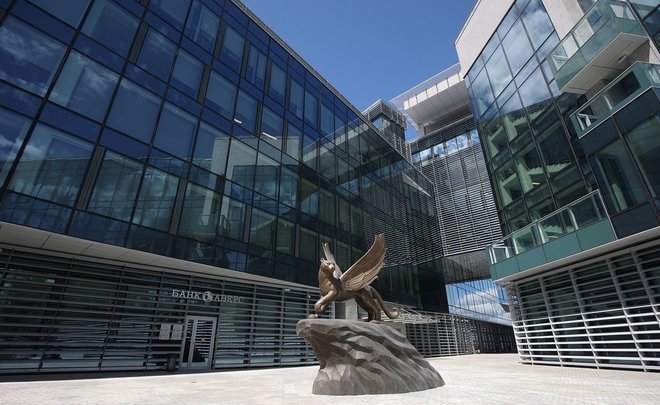
Discouraging forecasts were made in early 2022 amid growing sanctions pressure on Russia in general and oil and gas production, the oil processing sector in particular. Did the predictions come true? What is said about the performance in 2022 and plans for 2023 at TAIF — one of the world’s leaders in the level of technological effectiveness of oil processing? Read more in Realnoe Vremya’s report.
Oil production: growth instead of fall
2022 propelled Russia into undoubted leaders in the number of sanctions imposed against the country. Nine packages united a total of over 11,000 different bans and restrictions. However, as it is admitted today in the states that imposed them, the pressure didn’t expectedly affect Russia. Chairman of the Russian State Duma Vyacheslav Volodin stressed on his Telegram channel as early as May: “10,128 sanctions have been imposed against our country. More than against any other country in history. It is 10,128 challenges to get stronger.”
More painful bans were on oil and gas exports as one of the main sources of budget replenishment. With the sanctions pressure, many, including Russia’s Energy Minister Nikolay Shulginov expressed fears as early as September 2022 that oil production in the country would reduce by the end of the year. Oil processing was predicted to decrease too. “Oil production is now growing, but the production is likely to be lower than last year by the end of the year, approximately by 2%. We expect oil processing to fall by some 8% given the current tendency. It will total some 262 million tonnes over the year,” the minister claimed in an interview to TASS during Eastern Economic Forum in Vladivostok.
In the end, oil production in Russia in 2022 indeed changed by 2%. But not down but up: 535 million tonnes against 542.5 million tonnes in 221 (according to the Central Dispatcher Administration of the Fuel and Energy Complex). The ban on oil imports from Russia to the EU as well as the ceiling on Russian oil that came into force on 5 December 2022 didn’t have the time to have significant impact on general numbers last year.
“Stricter sanctions and the panicking transition of Europe to alternative fuel suppliers as a way of gradual refusal from Russian gas will become a significant trial for the Russian economy in the long term,” thinks OMT-Consult company. In answer to Realnoe Vremya’s request, the company’s expert Larisa Kamkina notes: “In the current situation, CIS and Asian countries become Russia’s main allies from a perspective of economic development. Oil sales to China’s market is set up.”
Analyst of the financial group Alexander Potavin agrees with this too. In his opinion, “Russian oil companies have already mostly refocused feedstock supplies from the EU market to Asian markets. Due to this, oil production hasn’t yet suffered in Russia amid the rise in domestic processing. Now it is a transition period after the introduction of the ceiling and embargo, this is why the effect of these restrictions will be clear only in a few months. In theory, Russian could keep increasing oil processing.”
Oil processing in Russia in 2022
More oil products were manufactured in Russia in 2022 than in 2021. Russian Vice Premier Alexander Novak told this Russia 24 TV channel in an interview last December: “We will produce about 5% more than last year — this is also a good indicator. Quality oil products are needed for our domestic market, for exports that have stayed at around last year’s level,” he noted.
“Russia is withstanding the sanctions as external pressure on the country’s economy. The package of measures taken by the government to raise the stability of the economy amid sanctions in general addresses the challenge of the West,” notes expert of OMT-Consult Larisa Kamkina. And she adds: “One shouldn’t forget an order issued by the president prohibiting Russian companies to sell oil to all legal entities whose contracts will contain any term or any oil price complying with some artificial price restrictions.”
Economic focuses from exporting feedstock abroad to developing high hydrocarbon processing on our territory has been gradually and consecutively shifted in Russia for many years. Tasks set by the country’s president at a meeting on the current situation in the oil and gas sector on 14 April 2022 are performed. There were set priorities for the areas related to the sector. Also, Vladimir Putin stressed that “the development of high oil and gas processing” was crucial. We have already seriously progressed in this area, in this sphere. Large-scale projects have been implemented, modern enterprises have been launched.”
The biggest numbers in the world
When Vladimir Putin talked about the modern oil refineries launched in 2022, he meant TAIF Group’s Heavy Residues High Conversion Complex at TAIF-NK too.
The project designed by a group of engineers chaired Director General of TAIF JSC Albert Shigabutdinov and his deputy in petrochemistry and oil refining Vladimir Presnyakov implemented by joint efforts of specialists of TAIF and TAIF-NK allowed the company to reach record-high numbers both in the conversion rate and, most importantly, in light oil product recovery per tonne of oil feedstock in 2022.
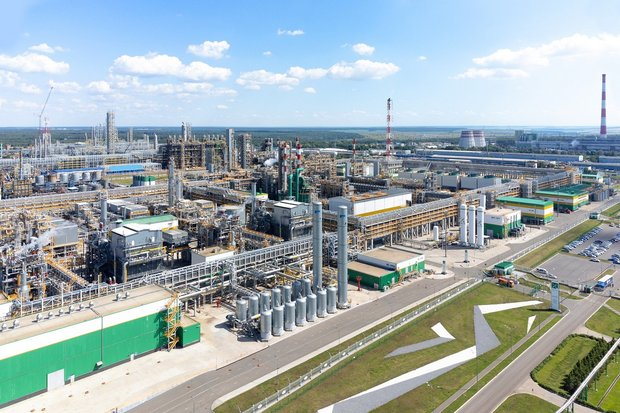
“The main goal of TAIF-NK is to develop truly highly refined oil, increase the recovery of light oil products as much as possible. The average result achieved in the enterprise during the year is over 87%, in August it was 93.5%. It is the biggest number in the world. There aren’t such units anywhere in general where heavy oil is processed and such an amount of light petrochemicals are produced,” Director General of TAIF-NK JSC Maxim Novikov highlighted in one of his interviews with Realnoe Vremya.
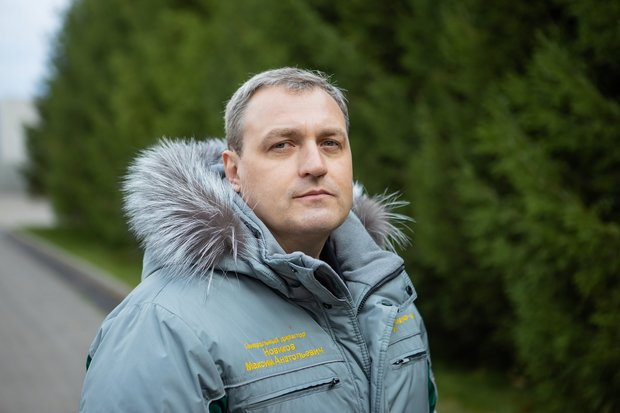
“The process of combined thermal and hydro tar cracking at the complex is the summit of technological processes of superhigh oil conversion in the world,” believes Director General of TAIF-NK JSC Maxim Novikov.
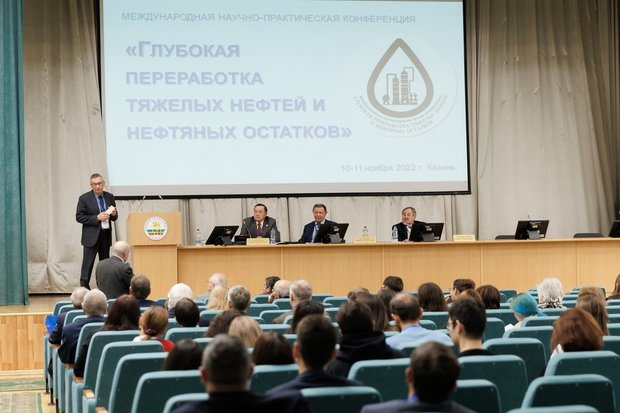
Participants in Heavy Oil and Oil Residues High Conversion international conference that took place in Kazan in November 2022 unanimously agreed with this opinion.
Professor Elshad Telyashev is a world-known scientist, senior researcher of the Institute of Petrochemical Refining in Ufa couldn’t hold up his emotions:
“It is a technological feat. The team that got an unfinished process in its hands that didn’t operate as it was established by the licensor polished it. It is in fact TAIF Combi Cracking. This is unbiased, absolutely seriously,” he emphasised.
We become only stronger amid sanctions
“Everything was good enough last year from an economic perspective, including in sales. TAIF is a well-oiled mechanism that needs fine tuning from time to time depending on the situation in the market,” head of TAIF’s Production and Commerce Department Leonid Yegorshin shared in an interview with Realnoe Vremya’s journalist.
According to him, both TAIF-NK and the republic’s biggest petrol stations TAIF-NK AZS successfully performed the tasks set in 2022. As well as the commerce department of Group’s main company that successfully sold all the products made by Group’s oil refineries.
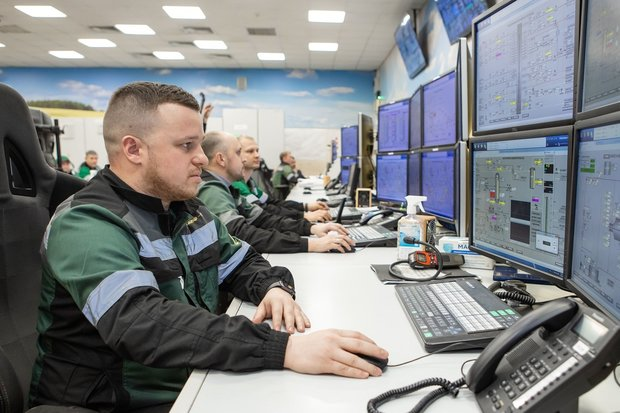
“All these packages of sanctions only enhance our professionalism helping grow in new areas, learn new destinations for sale. There are a lot of options that allow us not to reduce sales. Perhaps, we will hire a tanker ourselves to sell diesel fuel even amid sanctions. We are constantly adapting to the changing situation,” notes Leonid Yegorshin.
He also stresses: “I think the existing situation makes not only TAIF but also the whole country stronger and more robust. There is an old saying that Russia becomes only stronger when others try to corner it with tough conditions. In this respect, TAIF isn’t different from other Russian enterprises: we have a very powerful staff at TAIF Group. We make our innovative ideas a reality and become stronger amid sanctions. There is a very good characteristic for the TAIF employees: we don’t look for excuses for a bad job, we look for opportunities to achieve the best results.”
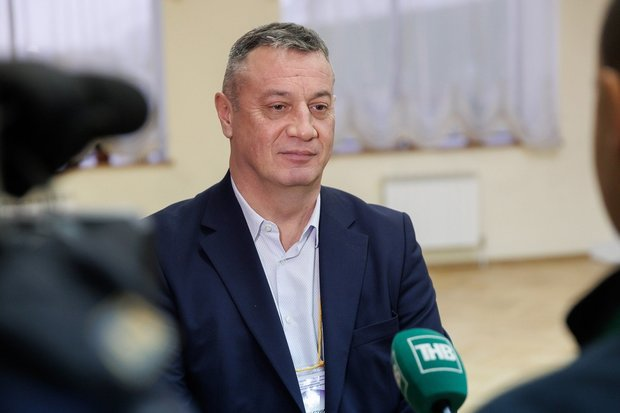
And these opportunities do exist. And there are results to consider as successes of Group in oil refining last year. Senior Adviser to the TAIF Director General in Petrochemistry Farid Minigulov told Realnoe Vremya about it.
“I think the steady operation of the Heavy Residues High Conversion Complex is one of the main accomplishments. There were a lot of nuances, a lot was fixed and done. Also, we did tests in 2023 and showed quite a good efficacy of a coal additive replacing a German one (Editor’s note: due to the sanctions, supplies from Germany were suspended). We signed an agreement with the Federal Coal and Coal Chemistry Research Centre of the Russian Academy of Sciences on further work in this area. In addition, in 2023, we plan several new projects for the further processing of petrochemicals we already have in our basket. Something is still discussed, something is already underway, like, for instance, the project of construction of a unit making tar hydrocracking concentrated residue from heavy oil residues at the HRHCC,” said Farid Minigulov.
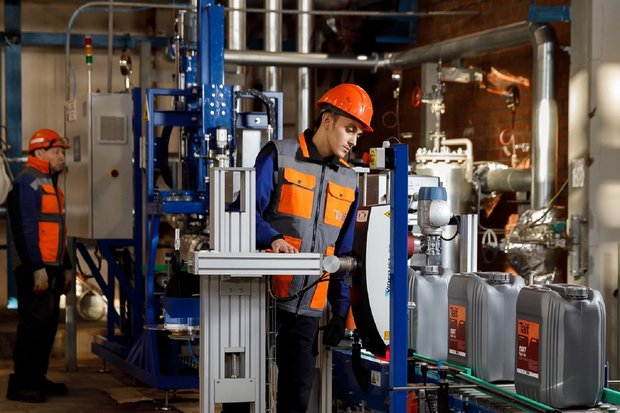
Another enterprise of TAIF Group achieved considerable success too — currently Russia’s unique high-quality polyalphaolefin-based synthetic oils.
“The project develops well. TAIF-SM uninterruptedly increases the existing line, ramps up the production and expands the geographical footprint. In fact, now it turned out to be the only producer of high-quality oils that can occupy the niches left by foreign manufacturers,” noted Farid Minigulov.
In particular, industrial oils are designed, authorised and their mass production is set up: gearbox, compressor and jet oils fully based on polyalphaolefins and aimed to replace foreign analogues that left the Russian market. These products are in a very great demand in enterprises in various sectors of the Russian economy, including in energy.
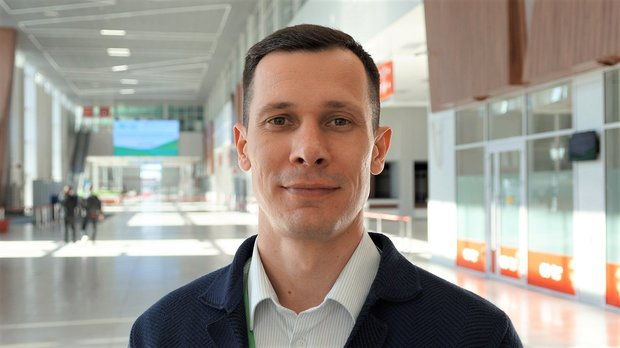
“Foreign brands left the Russian market, and there is a great opportunity to fill this vacuum with Russian products. And before 2022 clients could receive foreign oil through parallel import, now this became a way harder. We decided as early as 2021 that if businesses were readjusting, it was necessary to reduce the dependence on imports. In August 2021, we signed an agreement on granting our company the duties of the federal distributor of TAIF-SM lubricants for energy facilities. And the first project was in October 2021 already: the Glazov CHPP with SGT-600 gas turbines. A foreign brand used to be used earlier,” head of Land Gas Turbines of S-Technics company from Nizhny Novgorod Ivan Stepankov told Realnoe Vremya in an interview. And he added:
“The potential market of oils for gas turbines in Russian energy is about 3 million litres. This is not the annual capacity but the capacity of filled equipment. Nowadays 14 energy facilities are already running with TAIF-SM’s oils in the country. There is a total of some 30 gas turbines, while the performance with our oils is over 25,000 hours. Geographically, it is Khanty-Mansi Autonomous District, the Republic of Udmurtia, Krasnodar Krai, Irkutsk Oblast, Perm Krai... There are a lot of regions we have a working scheme with and there have been supplies. Turbine oil sales of TAIF-SM in 2022 reached 170,000 litres.”
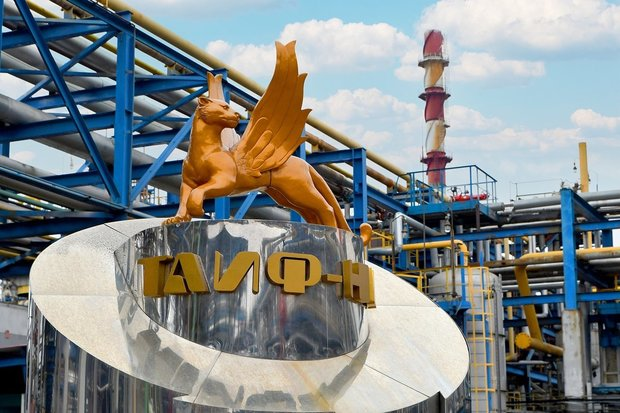
Farid Minigulov also emphasised that the companies of TAIF Group have always been client oriented.
“Of course, an individual approach complicates approaches to work, but the time, energy, money spent is offset in spades,” believes the senior advisor to the TAIF director general in petrochemistry. The ability to hear and understand consumers’ needs is another recipe of success of Group of Companies in general. As well as the constant search for the best technical and technological solutions to raise the efficacy of production activity, an aspiration to master new products and occupy niches in already known markets and uninterrupted work on the search for new outlets. It is not accidental that one of the mottos of Group is “Do Not Stop to Move!”